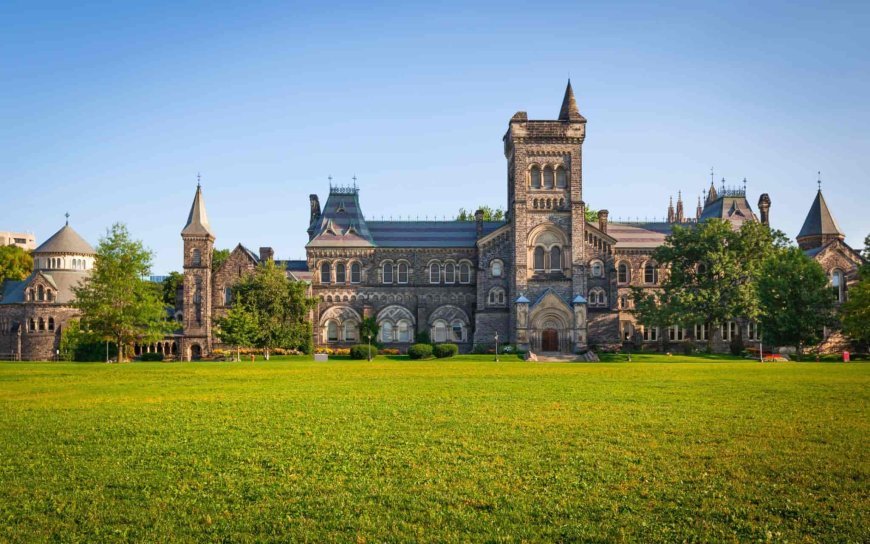From Tuition to Living Expenses: Understanding the Cost of Studying in Canada
Thinking about studying in Canada? It's a smart choice – but don't be fooled by tuition fees alone. The true cost of your education goes way beyond the classroom, with living expenses and other hidden costs adding up quickly. So before you start packing your bags, take a deep breath and read on. In this post, we'll break down all the costs you need to consider when studying in Canada – giving you a clear picture of what it really takes to succeed as an international student.

As an international student, you may be surprised to learn that the cost of studying in Canada goes beyond tuition. In addition to tuition, you will need to factor in the costs of housing, food, transportation, and other living expenses.
The good news is that there are many ways to offset the cost of studying in Canada. For example, you can work while you study, take advantage of scholarships and bursaries, and live a frugal lifestyle.
In this blog post, we'll break down the different costs associated with studying in Canada so that you can better understand the true cost of attending school here. We'll also provide some tips on how to save money while studying abroad.
Tuition Fees
The cost of tuition is one of the most important considerations when choosing to study in Canada. Tuition fees vary depending on the institution and program, but are generally lower than in other countries.
Living expenses are another important consideration. Costs will vary depending on your lifestyle, but you can expect to spend around $10,000 per year on living expenses. This includes food, accommodation, transportation, and other necessary costs.
When budgeting for your studies in Canada, it is important to consider both tuition fees and living expenses. By understanding the true cost of studying in Canada, you can make an informed decision about whether it is the right choice for you.
Living Expenses: Accommodation, Food, Transportation
The cost of living in Canada can be expensive, but it varies depending on the city you choose to live in. In general, cities like Toronto and Vancouver will be more expensive than smaller cities.
The cost of accommodation is one of the biggest expenses you'll have when studying in Canada. If you're planning to live in a dormitory or residence at your school, expect to pay around $600-$900 per month. If you're renting an apartment off-campus, prices will vary depending on the city but generally start at around $700-$800 per month.
Food is another major expense when living in Canada. A simple meal at a restaurant can cost around $10-$15, while groceries for a week might cost $50-$100 depending on your eating habits. If you're cooking for yourself, it's important to factor in the cost of groceries into your budget.
Transportation costs also vary depending on the city you live in. In larger cities, monthly public transit passes can cost $100 or more. If you're driving your own car, you'll need to factor in gas and parking costs as well. In smaller cities, transportation costs are generally lower but will still add up over time.
Miscellaneous Expenses: Books, Health Insurance
The cost of studying in Canada can go beyond tuition andliving expenses. Here are some other costs to consider:
Books and course materials: $600 – $1,200 per year
Health insurance: Starting at about $600 per year , depending on the province and plan.
Orientation fees: $100 – $250
Transportation: Varies depending on the type of transportation needed.
Public transit pass (monthly): $80 – $110
Cell phone plan: Starting at about $50 per month.
Clothing: Varies depending on personal needs and style.
Financial Aid Opportunities for International Students
There are a number of financial aid opportunities available to international students studying in Canada. The first place to start is with the Canadian government, which offers a number of scholarships and bursaries for international students. There are also a number of private organizations that offer financial aid for international students, so be sure to do your research. If you're struggling to finance your studies, there are a number of student loan options available from both the Canadian government and private lenders. Be sure to explore all of your options before making any decisions.
Practical Tips to Minimize Your Costs
1. Know what your costs will be before you arrive in Canada. This includes tuition, living expenses, books and supplies, and any other mandatory fees.
2. Make a budget and stick to it. Include all of your necessary expenses and try to limit your discretionary spending.
3. Consider studying at a less expensive school. In-province tuition rates are often lower than out-of-province or international rates.
4. Find ways to reduce your living expenses. Sharing an apartment or house with roommates can help reduce your monthly costs.
5. Take advantage of student discounts whenever possible. Many stores and businesses offer discounts for students with valid ID.
Conclusion
Studying in Canada can be expensive, and it’s important for potential international students to understand the true cost before making a commitment. The tuition fees are only one element of the costs associated with studying abroad; living expenses, health insurance and other miscellaneous expenses must also be taken into account when budgeting for a study program in Canada. With careful planning, however, studying in this country can still prove to be an incredibly rewarding experience both academically and financially.

 admin
admin